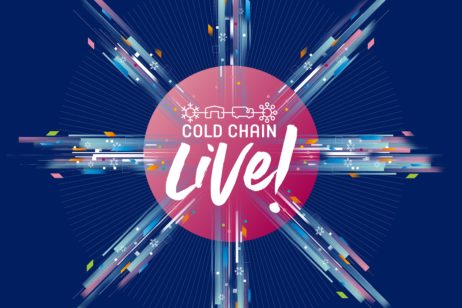
TOWARDS A NET ZERO COLD CHAIN

Professor Judith Evans | London South Bank University and Refrigeration Developments and Testing Ltd
evansj11@lsbu.ac.uk
Zero net carbon – food cold chain challenges – a research perspective
October 2020
In 2019 the UK became the first major economy to pass laws to reduce all greenhouse gas emissions to net zero by 2050. This is a highly challenging target as although the UK has reduced emissions by 42% compared to the 1990 baseline, much of this has been achieved my moving manufacturing abroad. Therefore, the problem has globally just been moved somewhere else. Nevertheless, moving the UK to zero carbon emissions by 2050 is still challenging. Even with the very best technologies and operational practices to reduce emissions, the UK is going to need substantial development and investment in technologies/schemes to offset the remaining carbon emitted.
The food and drink industry is the largest manufacturing sector in the UK and is responsible for 176 MtCO2e emissions (excludes inter alia, pre-farm production, packaging, food waste, land use change). The sector (encompassing food production, manufacturing, distribution and retailing) is worth £120bn per year and accounts for 9.4% of national gross value added (GVA). The industry is currently facing a number of challenges with uncertainly surrounding the impact of Brexit and the Covid-19 pandemic. The UK is dependent on food imports, with 84% of fruits and 47% of vegetables being imported in 2019. This makes the UK supermarket ‘just in time’ model rather vulnerable, unless frictionless trade can be maintained.
The Covid pandemic has changed the way consumers shop, with greater use of frozen food. Consumers have also made more use of home delivery, and if consumers do visit a supermarket they tend to visit one large supermarket less often rather than the previous trend for consumers to purchase food on demand from smaller supermarkets. Whether these trends will continue is a question for the marketeers and industry forecasters. Whatever the answer, these disruptions have exposed the vulnerability in the current cold chain.
Moving forward there are even more significant impacts on the horizon; in particular, changes to climate (including impact on food produced) which will have to be managed alongside industry growth, changes to imports, dietary trends, new logistics and consumer delivery models, current and new legislation and changes to the power generation and supply markets in the UK.
So how does academia and research fit into all these future cold chain developments? Until recently, obtaining funding for cooling projects was relatively difficult as heating was seen as the main issue for decarbonisation. However, that does seem to be changing with several recent calls from UK Government and international organisation for cooling related activities. Therefore, I’m hopeful that more work on the cold chain will be funded, especially to work with industry on how to reach the ambitious zero carbon 2050 target.
This is going to require not only more efficient processes but better integration of the actors and sectors within the cold chain as well as more use of renewables and energy storage. Logistics and data management are likely to also help drive cold chains to be more efficient and to reduce food waste. Not all of this is technical. Technical developments can answer part of the zero carbon 2050 target, but I don’t believe that zero carbon can be achieved without operational and behavioural change as well.
Within the research community there are huge challenges which are being worked on at varied levels from fundamental heat transfer up to more practical methods to minimise emissions. I believe that if we are to reach zero carbon by 2050 we have a lot of work to do. Not only does it take many years to develop new technologies, but the take-up of these technologies needs to be considered against the periodical replacement of equipment, and this is driven by financial constraints (for example a cold store may be built and operated for 30 years or more). Therefore, we need to also look at technologies and operational practices that can be applied to current systems (a good example is doors on open fronted retail display cabinets) if we have any chance of our zero carbon target.
Judith Evans is a Professor at London South Bank University and a Director of RD&T (Refrigeration Developments and Testing Ltd).
Headline Partners
Supported by

